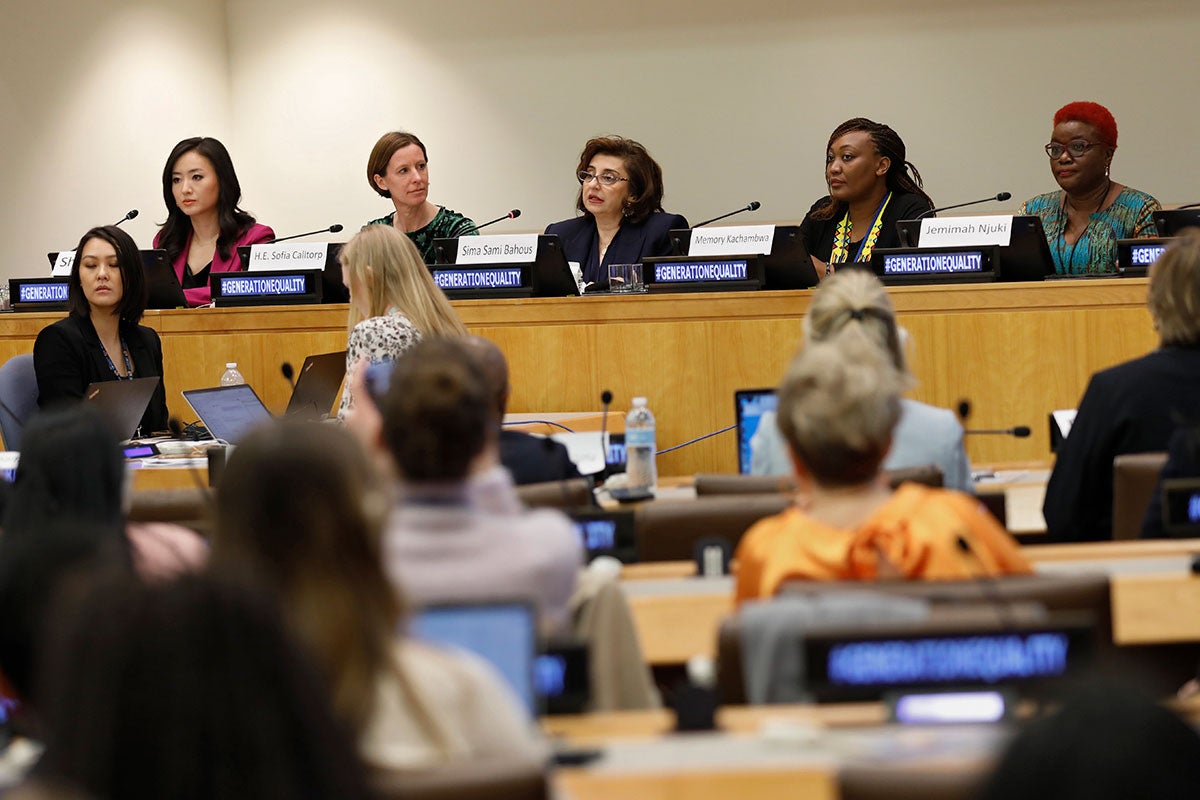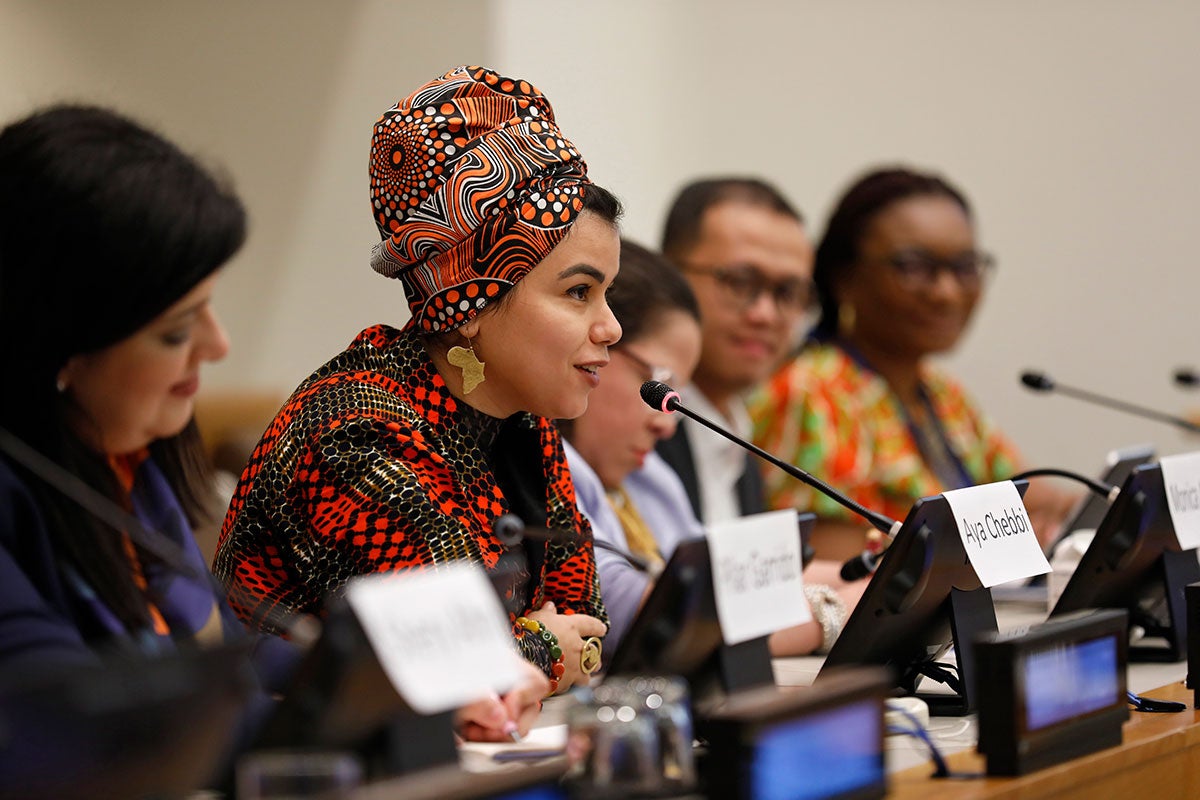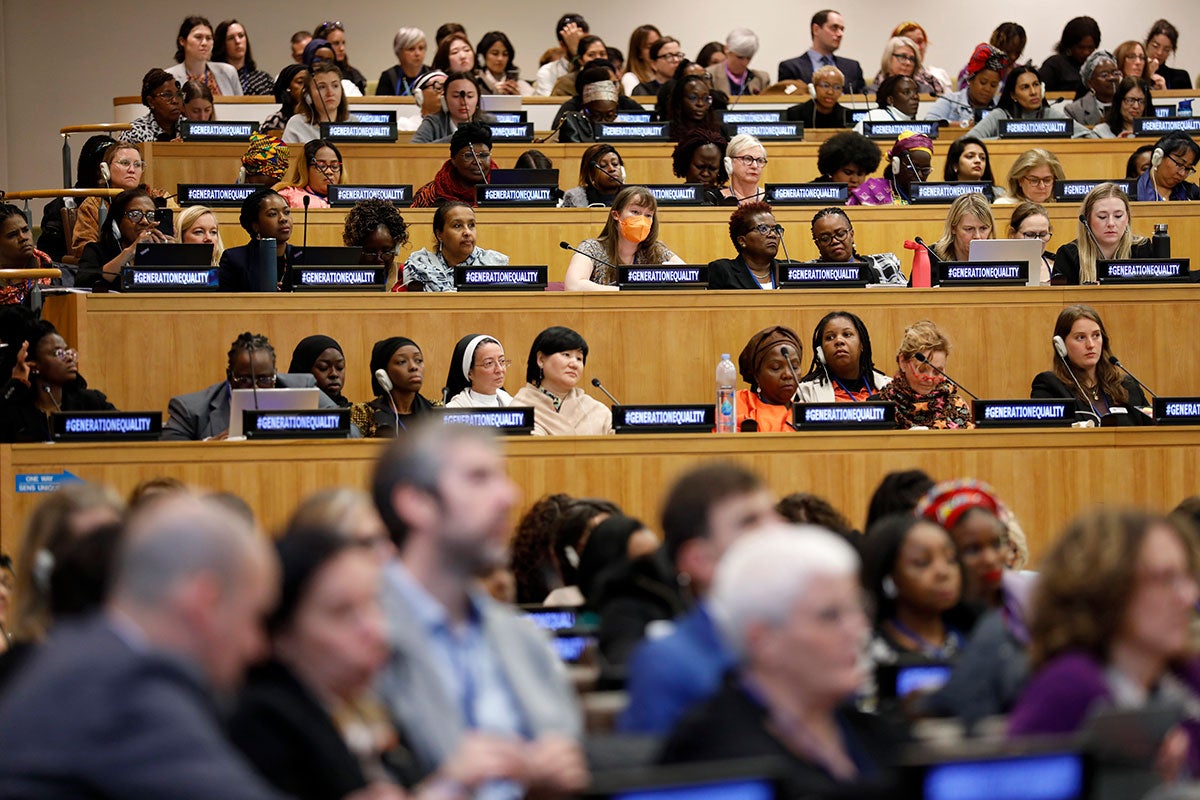At CSW68, Generation Equality calls for feminist financing and collective action for women’s economic justice
From improving women and girls’ economic participation in Tanzania, to re-shaping the care economy in Canada, Generation Equality commitments are robustly supporting action across sectors and ushering transformative change.
At this year’s Commission on the Status of Women (CSW68), Generation Equality hosted an event focused on feminist financing, sharing innovative solutions to advance gender quality and women's economic justice and rights.
“If we are not ambitiously proactive, women’s economic empowerment and autonomy will be continuously stalled,” said UN Women Executive Director Sima Bahous.
“To be ambitiously proactive, governments must prioritize gender-responsive financing and gender equality. ODA [official development assistance] to support women’s rights organizations and movements, already far below what is needed, recently fell by almost a third.”

A global blueprint for economic justice and rights
The Generation Equality Action Coalition on Economic Justice and Rights (EJR) launched its 2023 Accountability Report at the event – highlighting progress on commitments:
- 96 per cent of EJR commitments are on track, and Commitment Makers, including governments, private sector companies and civil society organizations, reported 135 new economic- and justice-related policies, 406 advocacy initiatives, and over 440 programmes.
- The EJR Action Coalition excels especially in community-level engagement, with 56 per cent of commitments being implemented locally.
- It also supports Generation Equality’s focus on collective action, with 83 per cent of all EJR commitments resulting in new partnerships or strengthening existing ones.
- Between 2022 and 2023, there was a 20 per cent increase in reporting by EJR Commitment Makers, leading to more reliable data.
These commitments help strengthen and uplift the economic status of women through transforming the care economy, ensuring decent work in formal and informal economies, increasing access to and control over productive resources, and promoting economic policies that benefit all.

Why do economic justice and rights matter
All women and girls both affect and are affected by economic justice and rights through all stages and areas of their lives. Economic empowerment contributes to their autonomy, security and sociopolitical lives. Empowering women and girls economically benefits economies and societies: GDP per capita would be nearly 20 per cent higher if all gender employment gaps were closed, and almost 300 million jobs could be created by 2035 through investments in care services.
“Women’s economic empowerment is not only critical to pave the way for individual freedoms,” said Sofia Calltorp, Sweden’s Ambassador for Gender Equality, “it is essential to many of the global and domestic challenges we face today, and to achieving the Sustainable Development Goals.”

Increasing investments in gender equality is the pathway to sustainable development
The Generation Equality Action Coalition joined others at CSW68 in calling for redoubled efforts to mobilize stable, long-term, and flexible financing for gender equality at scale.
“May we be the generation that will push for funding to come,” said FEMNET Executive Director Memory Kachambwa. “Funding that is trust-based, flexible, multi-year, and sustainable—and feminist funding models that actively listen and respond, with conviction and action.”









